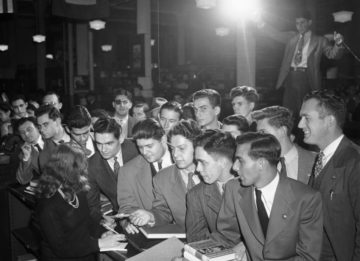 Ira Katznelson in Boston Review:
Ira Katznelson in Boston Review:
First published in 2005, my book When Affirmative Action Was White answered a question Lyndon Johnson posed at Howard University’s graduation ceremony in June 1965: Why had the large gap between Black and white income and wealth at the end of World War II widened during two decades marked by dramatic economic growth and widespread prosperity?
The book told the story of sanctioned racism during and just after the Great Depression and World War II. During this period, master politicians from the South proudly protected their region’s entrenched white supremacy by passing landmark laws that made the great majority of Americans, the overwhelming white majority, more prosperous and more secure, while leaving out most African Americans, in full or in part. Ever since, many persons left behind have continued to experience deep poverty, together with social and spatial isolation.
The book’s account of blatant discrimination has been challenged in the seventeen years since it appeared. Two lines of argument are especially noteworthy. One questions whether domestics and farm laborers—critical categories of Black employment—were in fact kept out of Social Security for reasons of race. The second argues that the book underestimates the bounty of the GI Bill for Black Americans. Both objections deserve respectful review.
More here.
